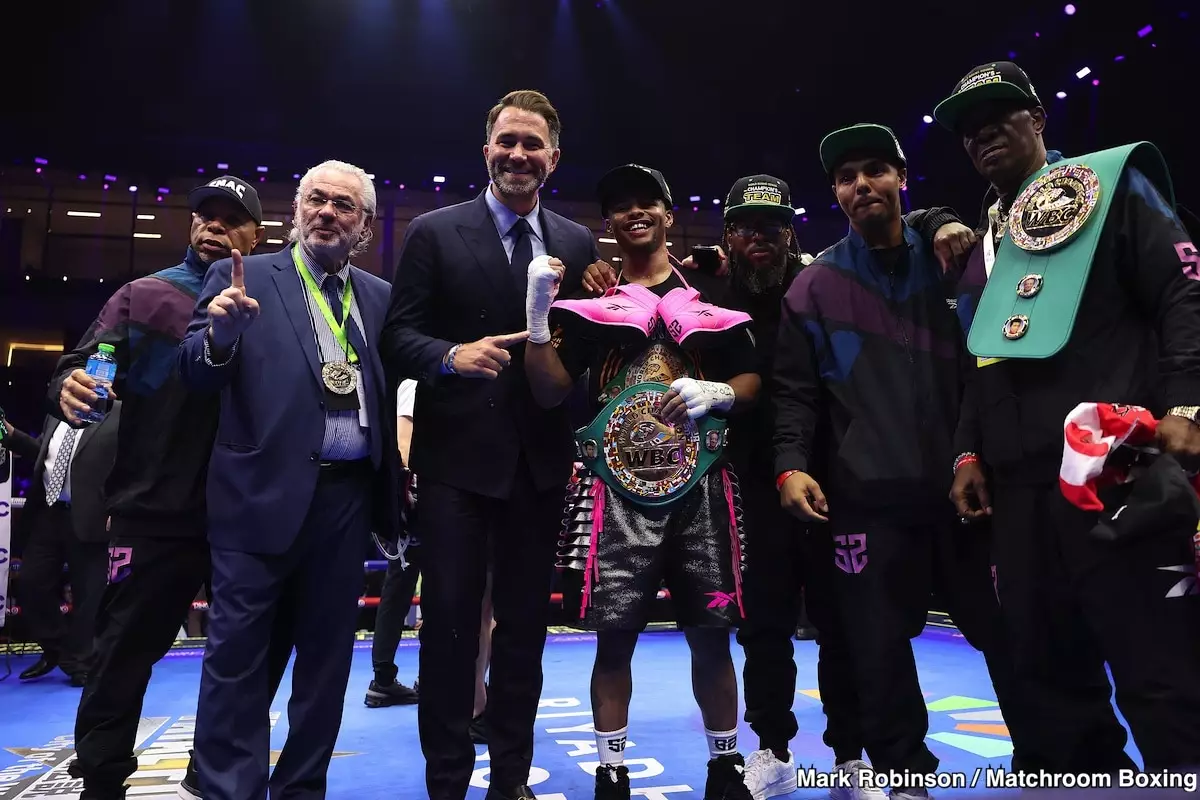Shakur Stevenson has undoubtedly made waves in the boxing community, emerging as a bright talent with immense potential. However, recent discussions surrounding his promotional journey are raising eyebrows as fans and pundits speculate on his future. With a two-fight deal in place with Matchroom, Stevenson’s next move against William Zepeda looms large. As promoter Eddie Hearn and Lou DiBella communicate about the future, one must wonder: Can Stevenson’s talents shine without the looming scrutiny of promotional contracts?
As boxing fans anticipate the July 12 bout in New York, the stakes couldn’t be higher for Stevenson. Hearn’s assertions that DiBella is aware of Stevenson’s contractual obligations signal a much greater story behind the scenes. It showcases the tremendously complicated nature of boxing contracts and the interplay between talent and promotion. With a solid record of 18-0, it might be easy to assume Stevenson is immune to the volatility of the boxing business. But is anyone ever truly safe in this cutthroat environment?
The Fight for Promoter Loyalty
Eddie Hearn’s comments about wanting to retain Stevenson signal an ongoing struggle between the promoter’s desires and the boxer’s autonomy. While Hearn strives to keep what he considers a precious gem in his stable, the tension surrounding potential negotiations post-Zepeda is palpable. If Stevenson secures a win, a flurry of promotional interests could bombard him, complicating Hearn’s ambitions to bind him further. Conversely, a defeat could diminish Stevenson’s clout, leading to a reevaluation of his worth within Matchroom’s roster.
Hearn’s affinity toward keeping Stevenson as a marquee fighter suggests a protective instinct as much as a business strategy. He mentions the potential for a wealth of promoters to seek Stevenson if circumstances favor him, yet he expresses concern over Stevenson’s skills at 135 lbs. This vulnerability creates a paradox for Hearn; his desire to hold on to Stevenson aligns with the need for Shakur to perform at a high level. The match against Zepeda becomes not just another fight but a battleground for Stevenson’s future in the sport.
The Impact of External Pressures
The mental and emotional toll that comes with the high expectations of stardom sets the backdrop for this boxing drama. Hearn explicitly discusses the impact of social media on athletes, suggesting that public perception could hinder Stevenson’s performance. The promotional game’s dirty tricks, insinuations about commitments, and the general noise of speculation can disrupt focus and confidence. When Hearn recounts Stevenson’s emotional breakdown due to online criticism, we see a glimpse of the psychological warfare athletes endure today.
As Stevenson maneuvers through the challenges of his career, external opinions—whether well-meaning or not—threaten to overshadow his accomplishments. The mental health of athletes in high-stakes sports cannot be understated, and Stevenson’s situation embodies the growing conversation around this issue in boxing. Promoters and fans alike must consider the responsibilities they carry in shaping the narratives that surround boxers. If public opinion directly impacts an athlete’s mental health, does that not compromise the integrity of the sport itself?
What Lies Ahead for Boxing’s Young Talents?
With Eddie Hearn eyeing the aftermath of the Zepeda fight, the future is murky for Stevenson and others in his position. The complexity of promotional relationships raises questions about the autonomy of young athletes who should ideally control their trajectories in the boxing world. As the sport continues to evolve, how much freedom should fighters expect when balancing the interests of their promoters with their careers?
The tumultuous nature of boxing exposes a greater dilemma: how can young talents like Stevenson transcend promotional limitations while achieving their dreams? Will they continue to be pawns in a game governed by business interests, or will they carve their own paths and dictate the terms of their careers? The answer isn’t simple, but the ongoing situation sheds light on the necessity for a systemic change within boxing—one that empowers fighters, prioritizes their mental well-being, and ensures they have a say in their futures. Only time will reveal whether Stevenson and others can achieve this elusive autonomy amidst the chaos.


Leave a Reply